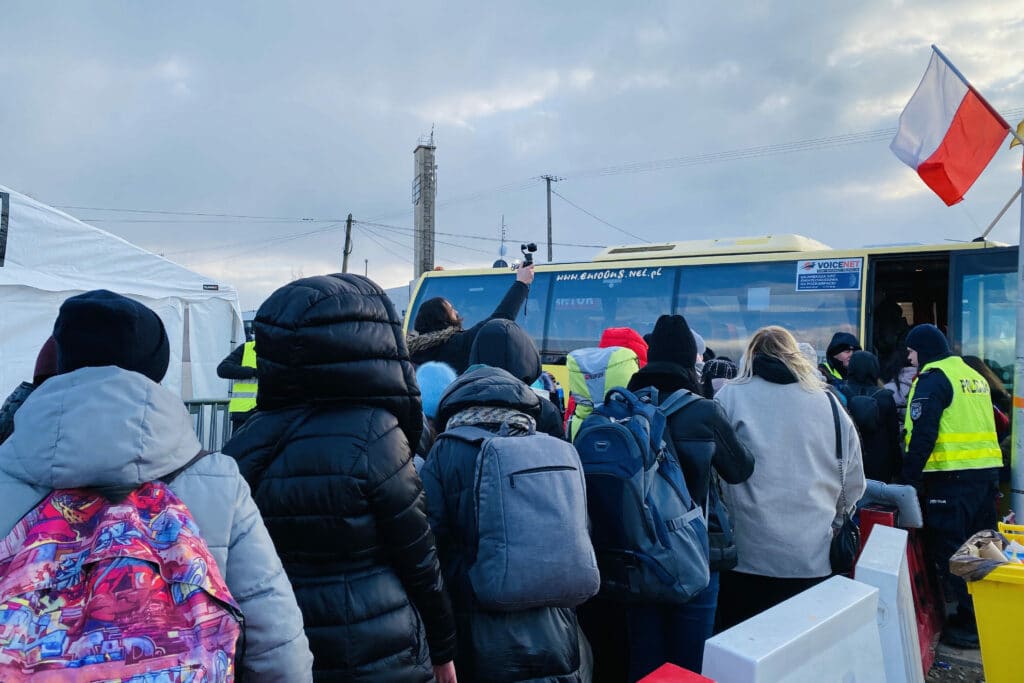What do we know about the elderly who are forced into exile by the war in Ukraine? What are their needs, their journeys? These are the questions that Armelle Klein, a Sociologist at INSERM[1] and laureate of a research fellowship from the Foundation, wants to answer with her research entitled “Aging in exile: access to health care and experiences of Ukrainian refugees in France”. Situated on the borderline between humanitarian action and the sociology of aging, the study explores an uncharted scientific field in an emergency context.
What is the background of your research? Can we talk about emergency research?
There has been a massive arrival of Ukrainian refugees. The latest figures show that 118,994 Ukrainian refugees came to France, with a large proportion of elderly people. At first, many arrived with three generations: wife, children and grandmother. Over time, the profile has changed somewhat. After seeing the arrival of rather well-off people, who could sometimes count on the help of their family or their social network, the associations were confronted with situations of great precariousness with refugees who had lived through several months of war and a more chaotic migratory path. Moreover, many returns to Ukraine take place every day and the refugees are particularly mobile when they arrive.
Because of these developments, there is a real challenge of adaptation in the conduct of research. We have to accept that the definition of the study’s scope is a little more vague. It is in this sense that we can speak of emergency research.

Why did you specifically choose the case of elderly refugees?
Taking an interest in the experiences of refugees is above all an opportunity to collect data on an audience that is not well known. By definition, refugees have no status and are mobile. It is difficult to count them, to keep track of them and to document their characteristics. With the elderly, we add another layer of difficulties, because the existing systems are traditionally designed for young migrants or for women with children. However, the aging of the population and the accumulation of health, climatic and political crises are increasing the proportion of elderly people among the refugees. These populations accumulate vulnerabilities and specific needs: mobility, language learning and health. This study is an opportunity to fill a knowledge gap on a more general issue.
Has the attention paid to the Ukrainian crisis influenced your research?
The conditions of care for the refugees from Ukraine are indeed unprecedented. The means deployed to facilitate the reception, medical care and administrative procedures were exceptional. But access to data remains just as complicated: there is no real centralization of the information collected by the associations involved in the reception and the prefectures are reluctant to share information. In addition, there has been a form of over-solicitation of reception associations by the media or elected officials, leading to a certain mistrust. This may be due to the debate on the “privileges” enjoyed by Ukrainian refugees.
What is the approach you have taken? What are the results you expect from your research?
My research is both qualitative and quantitative. For the moment, I have mainly started to conduct interviews with Ukrainian associations and elderly people. The objective is to know their needs and their access to care. It is also about understanding how they live their exile. Being uprooted at this age reinforces the perception of their vulnerability. The diversity of situations is obvious after my first interviews. But all of them feel a loss of reference points and a form of confusion. This is why the question of social ties appears particularly sensitive: how does the person grasp existing ties – family, friends, compatriots? When one comes to the family, is there room for the development of a new sociability? Do people find the resources and tools to maintain contact with the country?
Ultimately, the objective of the study is to make visible the experience of these elderly people in exile, who are currently “invisibilized”, and thus provide material for an adapted humanitarian response.
[1] National Institute of Health and Medical Research
Top photo credit: IFRC / Victor Berezkin





